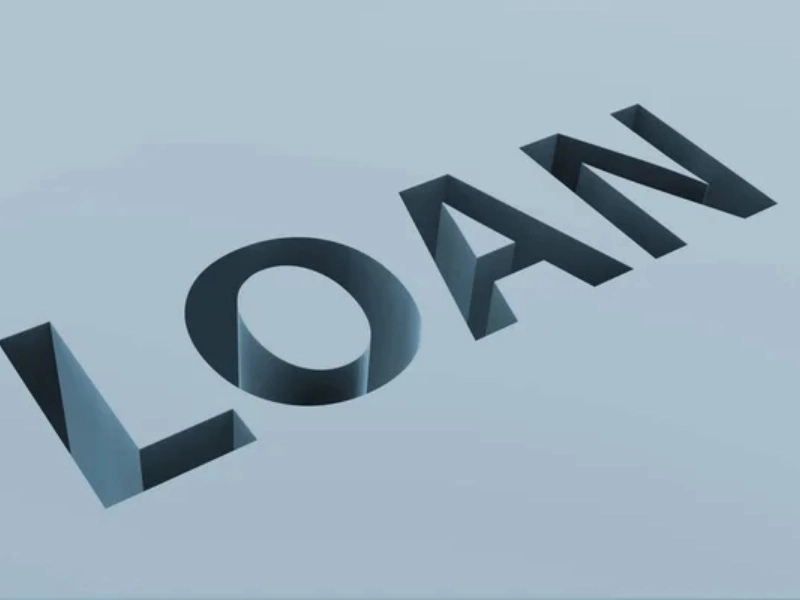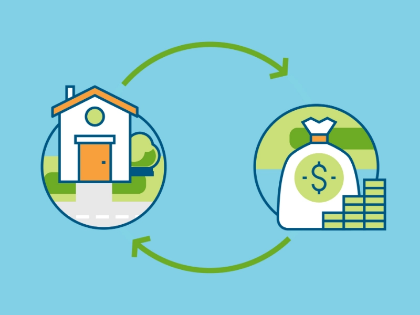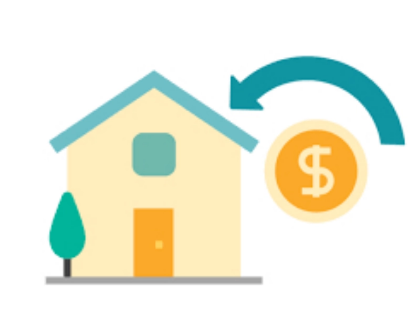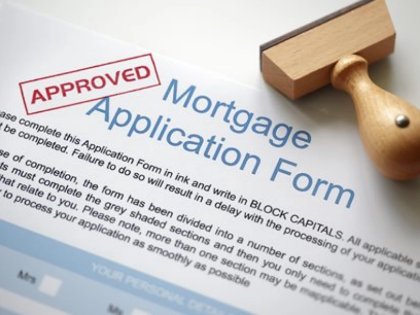Utilizing Loan Calculators to Optimize Home Equity
The market value of your house less the amount still owed on your mortgage is your home's equity. Finding equity in your house gives you the power to investigate your needs-based borrowing and refinancing options. You must be aware of both the current mortgage payback balance and your property's appraised value in order to determine your home equity. Liens on your property, such as mechanic's liens or tax liens, might also need to be taken into account.
1. The Loan Calculator
 You can make stress-free financial decisions by doing some math. You may evaluate your alternatives and choose the best financial plan for you and your family with the aid of a loan calculator. You may calculate your loan and get an estimate of your monthly payment and total interest cost by entering the information into a loan calculator.
The amount of money representing the portion of your property that you own after deducting your outstanding mortgage balance is known as your home equity. Subtract your mortgage balance and any other secured loans from the appraised value of your property to determine your home equity.
You may compare the benefits of home equity loans and home equity lines of credit (HELOC) by using a loan calculator. A home equity loan is normally taken out in one large payment, but a home equity line of credit (HELOC) lets you draw money as needed. Typically, a lender will want to see that your total loan-to-value ratio stays at 85% or lower.
You can make stress-free financial decisions by doing some math. You may evaluate your alternatives and choose the best financial plan for you and your family with the aid of a loan calculator. You may calculate your loan and get an estimate of your monthly payment and total interest cost by entering the information into a loan calculator.
The amount of money representing the portion of your property that you own after deducting your outstanding mortgage balance is known as your home equity. Subtract your mortgage balance and any other secured loans from the appraised value of your property to determine your home equity.
You may compare the benefits of home equity loans and home equity lines of credit (HELOC) by using a loan calculator. A home equity loan is normally taken out in one large payment, but a home equity line of credit (HELOC) lets you draw money as needed. Typically, a lender will want to see that your total loan-to-value ratio stays at 85% or lower.
2. Calculator for Cash-Out Refinancing
 For a number of reasons, including debt consolidation and home improvements, homeowners borrow against their equity. Nonetheless, taking advantage of reduced mortgage rates is the most frequent justification.
You must know the worth of your home and the remaining balance on your mortgage loan in order to compute your home equity. The two most reliable methods for determining a home's exact value are using online estimators and expert appraisals.
Once you have the data, calculate your home equity by deducting the current value of your property from the outstanding amount of your mortgage. The amount that you can borrow is then determined by dividing this figure by your loan-to-value (LTV) ratio. In addition to displaying your LTV, our calculator suggests loans for various objectives and refinancing scenarios. It also assists you in determining whether a cash-out refinance is appropriate for your circumstances.
For a number of reasons, including debt consolidation and home improvements, homeowners borrow against their equity. Nonetheless, taking advantage of reduced mortgage rates is the most frequent justification.
You must know the worth of your home and the remaining balance on your mortgage loan in order to compute your home equity. The two most reliable methods for determining a home's exact value are using online estimators and expert appraisals.
Once you have the data, calculate your home equity by deducting the current value of your property from the outstanding amount of your mortgage. The amount that you can borrow is then determined by dividing this figure by your loan-to-value (LTV) ratio. In addition to displaying your LTV, our calculator suggests loans for various objectives and refinancing scenarios. It also assists you in determining whether a cash-out refinance is appropriate for your circumstances.
3. Calculator for the Home Equity Line of Credit
 Another way homeowners can access the value of their property is through home equity lines of credit, or HELOCs. These are revolving loans, which can be used for debt repayment or house upgrades, and include draw and repayment periods.
Lenders use your current house worth, any outstanding mortgage balances, and any other debts secured by the property, including second mortgages, to determine how much you can borrow. Subsequently, they divide this figure by the existing loan-to-value (LTV) ratio. Lenders typically approve HELOCs with an LTV of up to 80%.
Although it is simple to use a calculator to determine the maximum amount of a home equity line of credit, you should always speak with a lender to obtain more precise findings and to learn about your borrowing choices. For instance, you can find out how much you can borrow using the First Merchants home equity line of credit calculator by entering your current appraised value and loan-to-value ratio.
Another way homeowners can access the value of their property is through home equity lines of credit, or HELOCs. These are revolving loans, which can be used for debt repayment or house upgrades, and include draw and repayment periods.
Lenders use your current house worth, any outstanding mortgage balances, and any other debts secured by the property, including second mortgages, to determine how much you can borrow. Subsequently, they divide this figure by the existing loan-to-value (LTV) ratio. Lenders typically approve HELOCs with an LTV of up to 80%.
Although it is simple to use a calculator to determine the maximum amount of a home equity line of credit, you should always speak with a lender to obtain more precise findings and to learn about your borrowing choices. For instance, you can find out how much you can borrow using the First Merchants home equity line of credit calculator by entering your current appraised value and loan-to-value ratio.
4. Calculator for Home Equity Loans
 Home equity is the amount of your property that you actually own after deducting any liens (such as tax or mechanic's liens), second mortgages, HELOCs, and other debt that is secured by your house. Start with an estimate of your home's current market worth or get one from a real estate website like Zillow to figure out how much equity you have. The amount of accessible home equity is then calculated by deducting the principal mortgage sum from any outstanding debt that is secured by your property.
Use this calculator to see how you may save money by consolidating various credit cards, installments, and other debt into a single monthly payment at a reduced interest rate by using your home equity for debt consolidation. Make sure you can afford a new debt commitment by comparing your funds to the loan payment.
Home equity is the amount of your property that you actually own after deducting any liens (such as tax or mechanic's liens), second mortgages, HELOCs, and other debt that is secured by your house. Start with an estimate of your home's current market worth or get one from a real estate website like Zillow to figure out how much equity you have. The amount of accessible home equity is then calculated by deducting the principal mortgage sum from any outstanding debt that is secured by your property.
Use this calculator to see how you may save money by consolidating various credit cards, installments, and other debt into a single monthly payment at a reduced interest rate by using your home equity for debt consolidation. Make sure you can afford a new debt commitment by comparing your funds to the loan payment.











